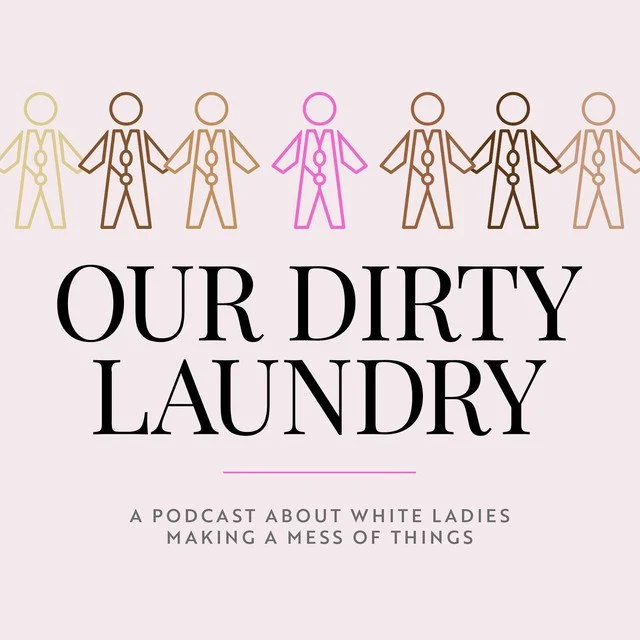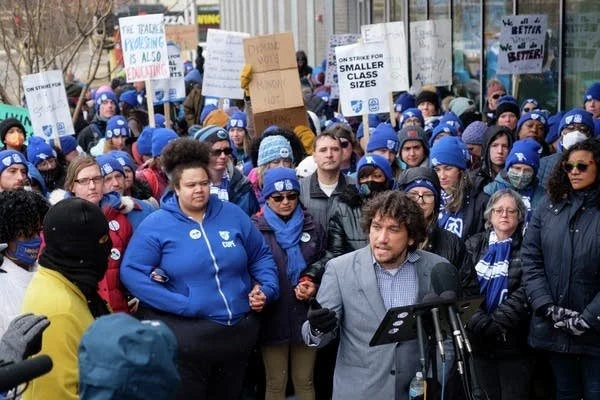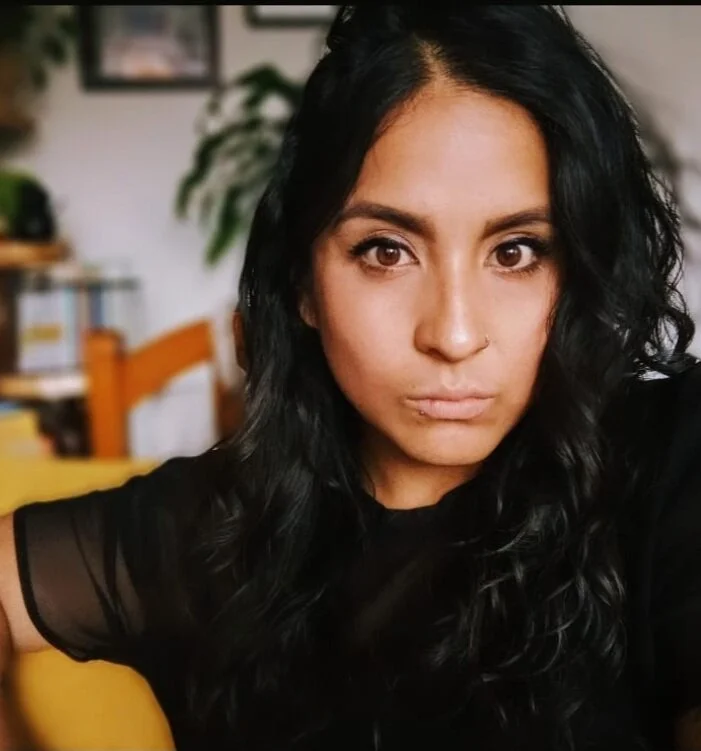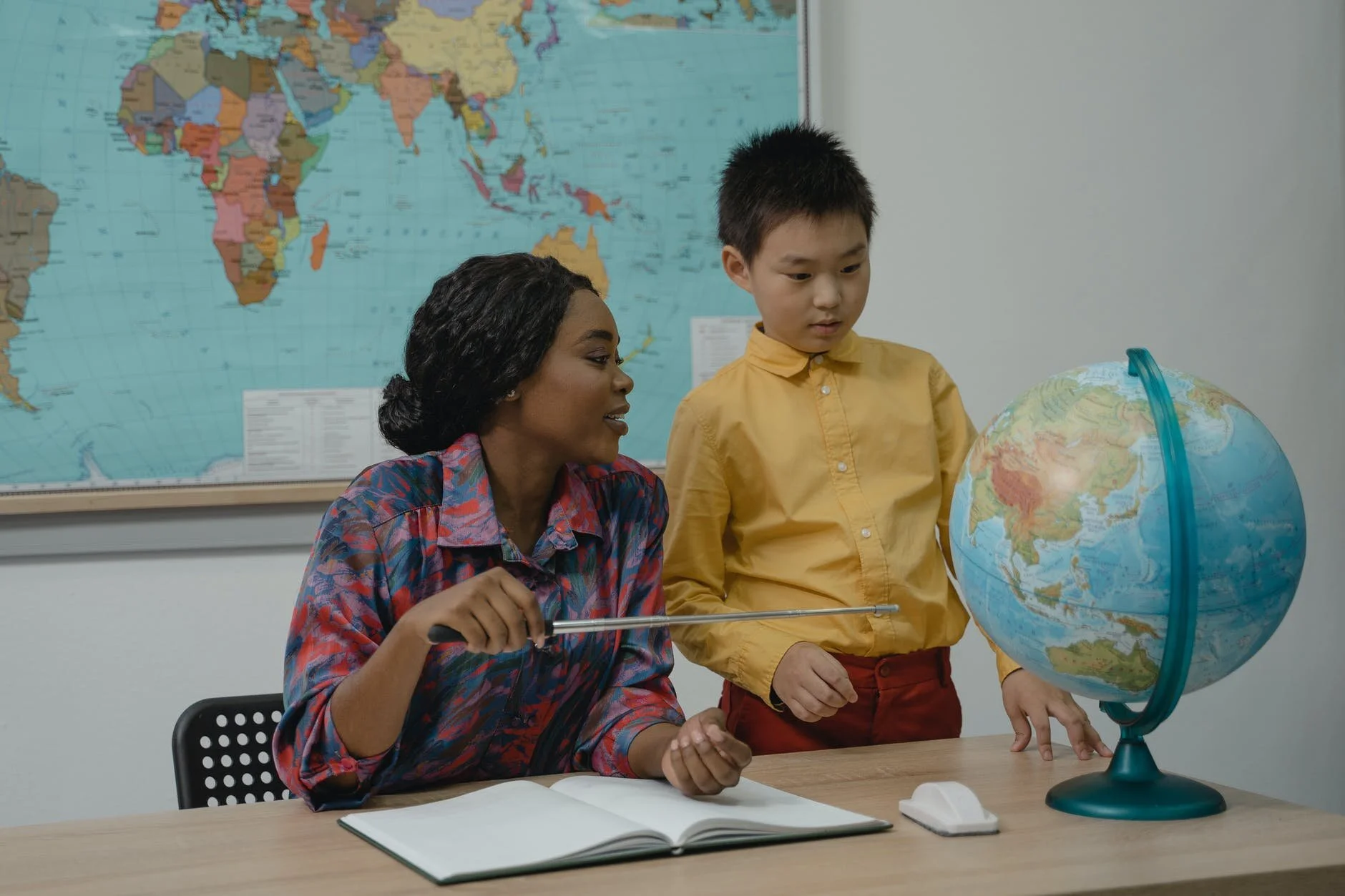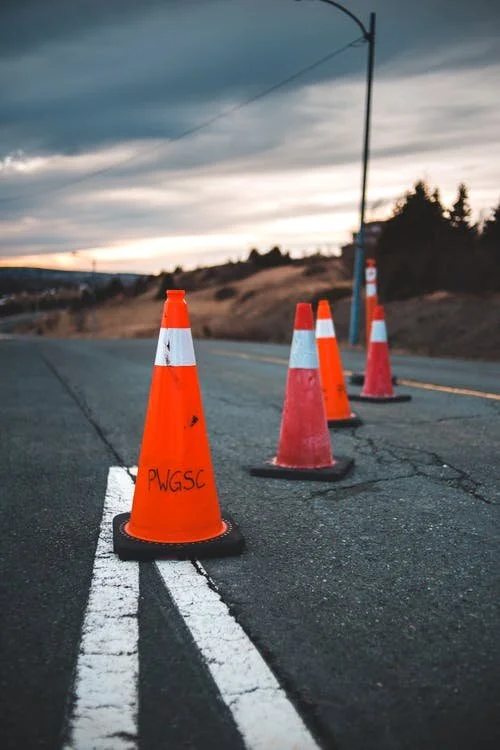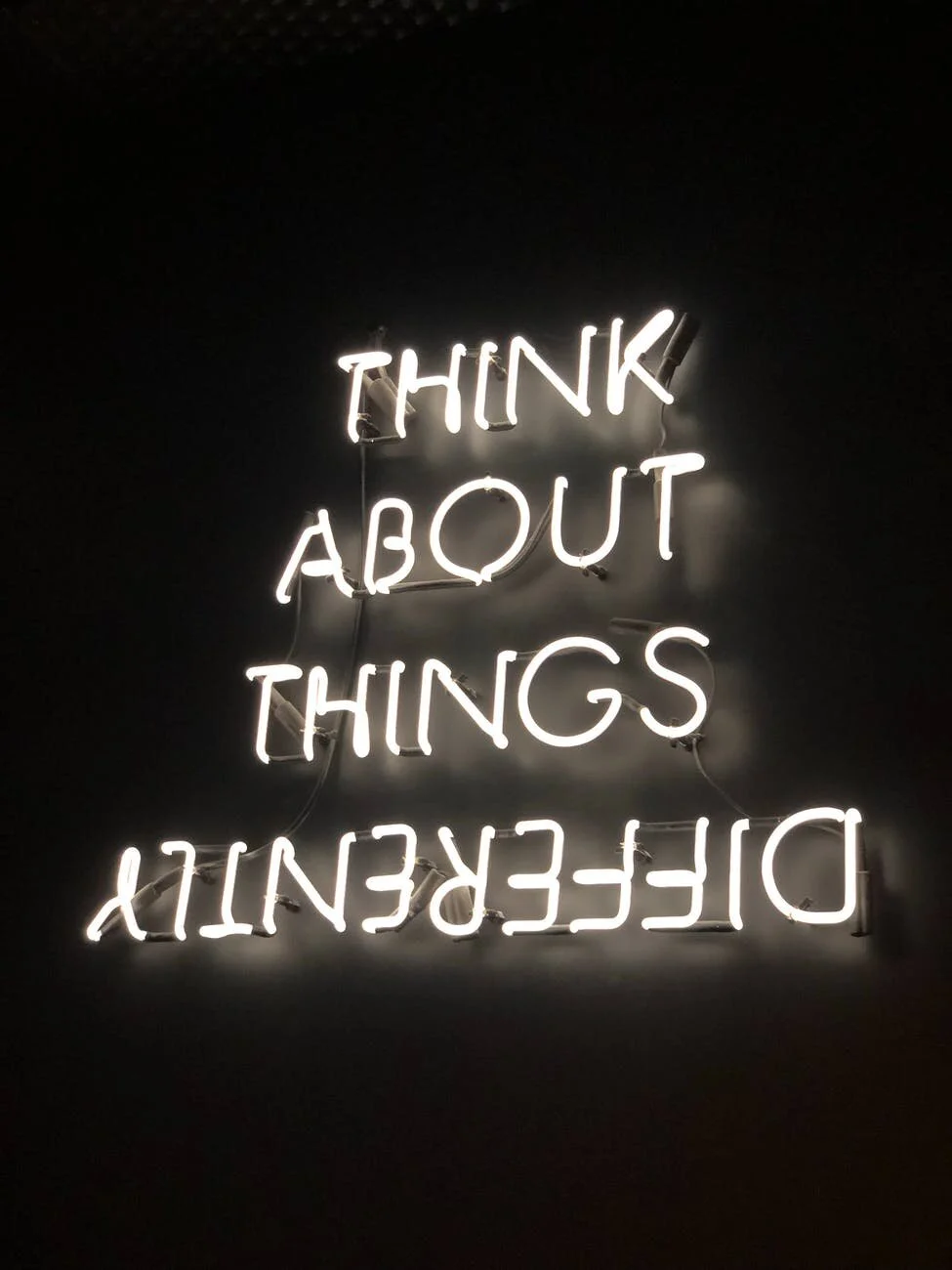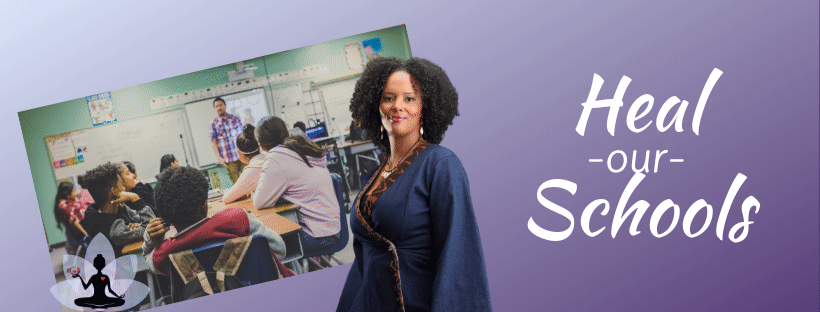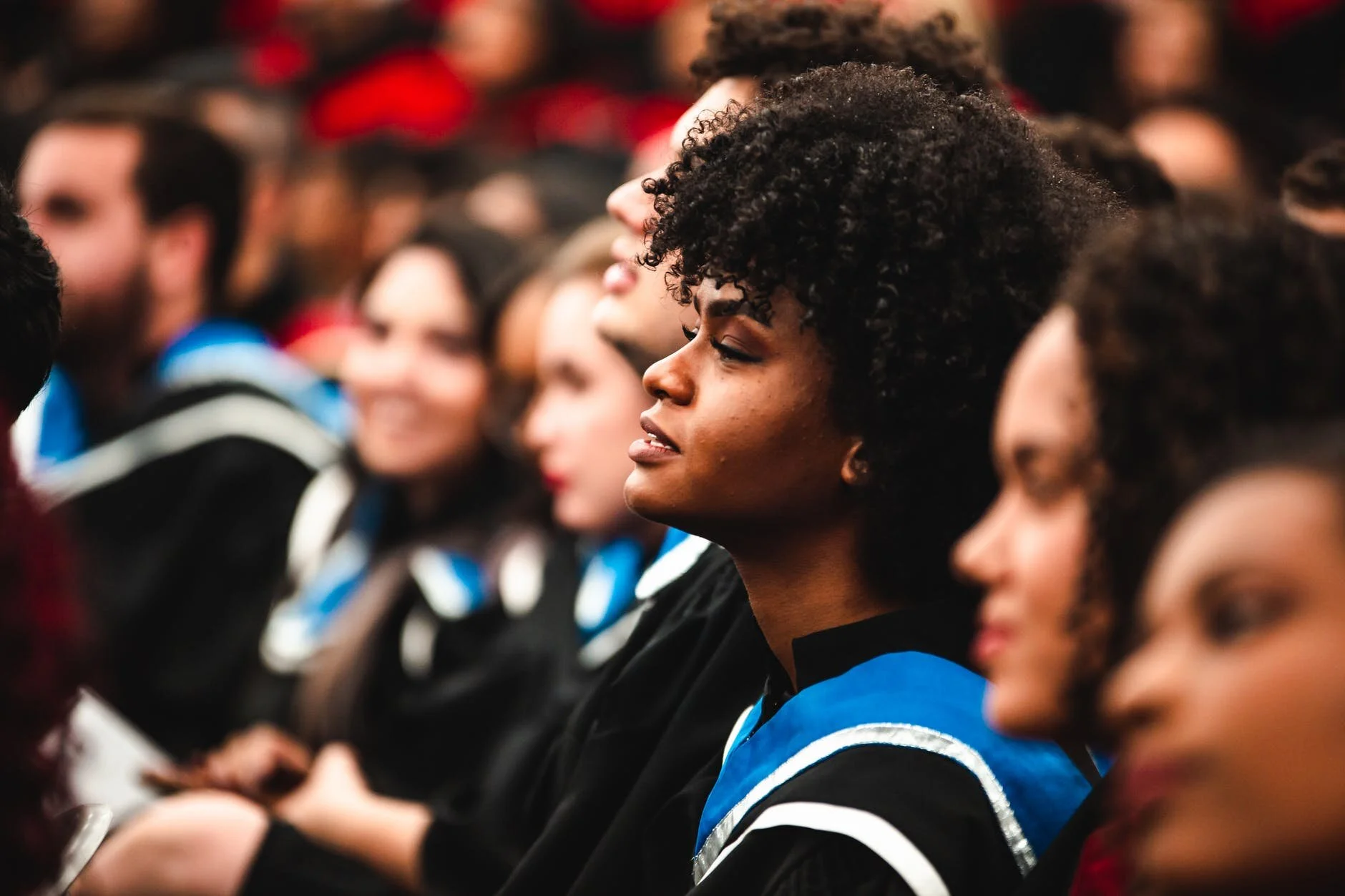Ep. 191: Reparations in Action: Building Racial Equity in Tacoma
In this episode, we sit down with Nicole Jordan, a Black, queer activist with deep ties to Tacoma’s Hilltop community and Laurie Arnold, an educator and longtime social justice advocate focused on racial justice. Together with a cohort of strong women, lead Tacoma Does Reparations, a grassroots initiative dedicated to reparative payments for Black womxn living in Tacoma. This conversation dives into the organization's origins, the scope of their work, and their vision for racial equity. Listeners will hear about the concept of reparations, both broadly and specifically in the context of Tacoma. Laurie and Nicole discuss past reparative efforts as models for the Tacoma initiative, common misconceptions and challenges they’ve faced. Most importantly we explore why reparations are essential to addressing racial wealth disparities.
Find out more at Tacoma Does Reparations
Check out their Patreon
Do Your Fudging Homework:
Laurie: Race: Power of an Illusion, PBS; New Jim Crow
Nicole: Pause and think about the black women in your life
Hope: The Case for Reparations, Ta’Nehisi Coates
Annie: Check out the Tacoma Does Reparations Instagram and learn more about the importance of this work in our community.
Ep. 165: Jessie Daniels "Nice White Ladies", Author Interview
We are back to it with our #readlessbasic book club selection. Unlike previous book club conversations, we were lucky enough to connect with author Jessie Daniels to kick off this season’s book.
However, we start this episode with a brief note about the humanitarian crisis in Palestine right now.
We geeked out in this incredibly engaging conversation about historical perspectives on white women's roles, contemporary manifestations of white womanhood, and the complex interplay between whiteness, womanhood, and the perpetuation of white supremacy. We explored societal implications and personal reflections on breaking the cycle of generational whiteness. Lastly, Daniels discussed how her book aims to challenge readers to question and redefine their understanding of these entrenched societal structures.
There were many many references in this conversation so we will continue to add to this list.
Resources Referenced:
Layla Saad, “Me and White Supremacy”
Do Your Fudging Homework:
Hope: One of the recs in this book is to examine who you’re surrounded by – read more than white folks; make non white friends; go to activities & events w/ nonwhite folks
Megan: Do the work on yourself to make sure you are not going to take up the space when you occupy non-white spaces. Your whiteness has automatically centered your thoughts, feelings, and opinions in most spaces your whole life. I mean this in the kindest but most direct way possible, your feelings are not the most important in the room.
Jessie: Take inventory of the spaces you occupy. Start by paying attention to your environments and how that creates feelings for you.
Join our #readlessbasic book club by reading NWL. Download the NWL Discussion Guide and get together with some friends.
Ep. 164: White Women Trying To Fight White Supremacy
Before we get into this week’s episode, we wanted to take a moment to talk about what’s happening in Palestine and Israel.
EQ: What actions can white folks (esp white women) take to hold themselves accountable for the historical perpetuation of white supremacy, and what steps can we collectively take to reconcile our past and build a more equitable future?
Guests: Katy Swalwell and Mandy Griffin, co-host is the Our Dirty Laundry Podcast. Katy was a former guest on the show back in 2020 on Ep 64: Why We ALL Need an Equity Framework
It felt fitting to play a quick round of yeah, no yeah before jumping into the topic at hand–white women making a mess of things. Katy and Mandy share more of their story and the origins of the Our Dirty Laundry podcast.
Do Your Fudging Homework:
Hope: Edpost Series “Jane Crow: Then & Now”
Megan: The obvious HW - go listen to Our Dirty Laundry Podcast!
Katy: Go to our suggested reading list. Be open to the idea that what you learned about history isn’t accurate.
Mandy: Audre Lorde “The Master's Tools”
Ep. 145: How Long Form Journalism Can Shape a Community
Essential Question: What is the role of race and gender in shaping the ways that journalists convey particular stories or pursue "truth" pertaining to charged events?
Guests:
Kari Plog award-winning, South Sound reporter for Seattle-Tacoma kplog@knkx.org
Mayowa Aina, South Sound reporter, audio producer, and editor based in Tacoma, WA.
You may know our guests from other Channel 253 shows or from hearing their voices as cohost of The Walk Home Podcast @NPR station @knkxfm.
Most recently, Kari was a panelist in the NF Live: Adult Civics Happy Hour
In this episode we focus on the evolution of journalism and what it means to sit at the intersection of race and gender in this profession. Mayowa and Kari are candid about their personal experiences and give us insight into their experience creating, recording, and shaping The Walk Home podcast.
Do Your Fudging Homework:
Kari: Media literacy–know who owns your local paper and who is shaping the stories; it’s key to our democracy
Mayowa: Donate to your local public radio station
Hope: If you haven’t, listen to “The Walk Home” (ditto)
Ep. 138: If We Want Equity, We Have to Put It in Contracts
EQ: To what extent would re-writing seniority clauses in teacher union contracts promote retention of educators of color and better serve our students?
In this episode of IWL, we are joined by Chris Stewart, the Chief Executive Officer of brightbeam, to discuss the recent change in the Minneapolis Teacher Union contracts. Chris was part of the first campaign to protect Black teachers (and other teachers of color) back in the early 2000s when he was on the school board. We discuss what this current provision in the contract means, including implications for other school districts. More importantly, we learn key contextual information behind this provision and how Black educators are fighting for their right to stay and teach the diverse body of students in the Minneapolis school district.
To learn about Chris’ work check out his website Citizen Stewart and follow him on Twitter @citizenstewart
Related Links:
Do Your Fudging Homework:
Hope/Megan: Follow @citizenstewart for some thought provoking tweets
Chris:
Support the local NAACP chapter fighting for Black educators
Write to the union president Greta Callahan and tell her you support the protection for educators of color
Find a group of friends to learn more about the situation facing Minneapolis educators of color. Read together, discuss and consider how it relates to your local context.
Ep. 116: Our Role in Upholding Anti-Blackness
EQ: How are white supremacy and anti-blackness a result of the living legacy of colonization and what does it mean for us today?
Guest: Alysa Pererras, Equity, Inclusion and Justice Consultant and Researcher in Medellin, Colombia.
Hope and Megan return to an important conversation about the presence of anti-Blackness in our society. This time, they’re exploring its presence in relation to colonization. They’re joined by DEIJ consultant Alysa to discuss its roots, relationship with White Supremacy and everyone’s responsibility to dismantle the systems of oppression around them. You can follow Alysa on Twitter.
Related Resources:
Do Your Fudging HW:
Hope: Hire Alysa or at least attend a workshop she is facilitating!
Megan: Read the article “Call it what it is: Anti-Blackness”
Alysa: Shout out to Audre Lorde, Alan Palaez Lopez
Ep. 105: Critical Race Theory & Other Things White People Don’t Understand
EQ: How is the panic around Critical Race Theory indicative of white nonsense and why has it become such an easy target for Conservative Politicians?
In this episode of IWL, Megan and Hope dig into the kerfuffle that is the recent critical race theory (CRT) debate. Built on nonsense and white fragility, CRT is now a phrase donning the lips of many a well-meaning but poorly informed person. Armed with fear and misunderstanding, some communities are demanding school boards institute bans and establish parameters for how teachers teach history (and other related topics). From “why are folks mad” to “are we actually teaching CRT in our classrooms”, these IWLs share their own understanding of the topic and where they are still learning, growing or feeling confused.
Referenced in this episode:
The NYT 1619 Project Is Reshaping the Conversation about Race
"Spontaneous parent campaign" against Critical Race Theory in schools being organized by DC lobbying firm, known for past astroturf campaigns
If Critical Race Theory is Banned, are Teachers Protected By the First Amendment?
Do Your Fudging Homework:
Hope: Citizen Ed/Nate Bowling Interview: What CRT bans mean for teachers;
Katy Swalwell podcast Our Dirty Laundry
Ep. 85: Confronting Barriers to Equity In Our Communities w/ Consultant Taniesha Lyons
EQ: How has the work of diversity, equity and inclusion changed over time and why is this something organizations are still getting wrong in 2020?
Guest: Taniesha Lyons, community advocate, founder & executive director of Taniesha Cares LLC whose mission is to empower people and businesses through consulting, resources, advocacy, and diversity equity, and inclusion (DEI) training.
In this episode Hope and Megan are joined by Taniesha Lyons. They start the episode by talking about the importance of representation in all spaces, especially in education. By having spaces that are run by all white leaders, Cultural Imperialism is more evident and prevalent in that space. The conversation focuses on how organizations can and should include more voices in their organizations in order to create more equitable opportunities and representation or all. During the conversation they discuss cultural imperialism, social services and Covid, feelings around the new term BIPOC, and the trauma of code switching and the negative ramifications of school being a white space on students of color.
Could you or someone you know benefit from some of the services discussed in the Podcast? You can find more information here:
Champagne and Real Pain:
🥂 Ron Banner - Clover Park Superintendent
🥂 Melanie Morgan - Representative for the 29th District in the WA State Legislature
🥂 Marcus Young - Bethel School District School Board Member
🥂Larry Seaquist - Running for Pierce County Executive
🥂 T’wina Nobles - Running for 28th District
🥂 Karen Dhaliwal - Bates Apprenticeship Navigator
🥂 Ben Feldbush - TCC Retention Specialist
🥂 Pastor C. Ivan Johnson - Pastor at Greater Destiny Church
🥂 Grant Twyman - Racial Equity Officer for Clover Park School District
🥂 All those writing personal letters to voters encouraging them to vote
🥂 Those having hard conversations w/ family & loved ones to ensure 45 is gone
🥂 Bea Lumpkin - the 102 year old women who essentially wore a hazmat suit to turn in her ballot
Do Your Fudging Homework:
If you would like to hire Taniesha Lyons or learn more about what she does you can reach her at her email: Tanieshacares@gmail.com
Ep. 83: Kill the Ogre of Post Secondary Education with Katie Wallace
EQ: What are the unique challenges of BIPOC students in post-secondary education and how can these institutions begin to dismantle their oppressive systems and histories in order to create a more inclusive and accessible community for these students?
Guest: Katie Wallace is an educator living and working in Seattle. She's Korean-American, adopted, and grew up in a multiracial family. After eight years teaching high school Spanish in Central and South Seattle, she transitioned out of the classroom and into higher education. She now leads a paid internship program for undergrads working with nonprofit and public sector organizations.
Hope and Megan sit down with Katie Wallace to discuss the experience of BIPOC students in Post-Secondary education. As more BIPOC students are enrolling in Post Secondary education, the conversation is shifting to how are Universities creating equity in the experience of these students. The conversation focuses on the retention of students of color, and what the responsibility is of the Universities/Colleges regarding this work.
Resources Referenced:
Sarah Kendzior - Author - commentary on paid internships
Race and Ethnicity in Higher Education: A Status Report - American Council on Education
Example of a University “killing the Ogre” and creating a welcoming space for their BIPOC students https://www.pri.org/stories/2019-06-03/new-washington-law-religious-accommodations-could-serve-model-other-states
Champagne & Real Pain:
🥂Not related to our topic at all, but if you are Christian leaning go listen to Chasing Justice podcast or pick up “Raise Your Voice: Why We Stay Silent and How to Speak Up”
🥂The Republicans who spoke at the DNC and endorsed Biden despite party politics.
🥂Orientation Leaders at Colleges who are still showing up and serving the first year students
👎🏻Lack of care around face masks and people that are not listening to science and making life more challenging for business owners.
👎🏻People that are still opening schools and are ignoring the science around reopening
👎🏻Covid causing rituals and traditions to look very different and having to experience very real things on a screen
Do Your Fudging Homework:
Katie- Disturbing Your Peace podcast - Created by Katie’s former student
Hope- not related to our topic at all, but if you are Christian leaning go listen to Chasing Justice podcast or pick up “Raise Your Voice: Why We Stay Silent and How to Speak Up”
Megan- Find your ballot dropboxes in your area. Request your ballot early. Drop off your ballot directly to a dropbox early. Then, buy a book of stamps.
Follow us on Twitter @IWL_Podcast or Facebook: Interchangeable White Ladies Podcast
Ep. 81: Getting Comfortable with Discomfort
EQ: How can educators intentionally make space for challenging and engaging conversations in the classroom, be it virtual, hybrid or in-person?
Guests:
Milton Reynold, a San Francisco Bay Area based career educator, author, equity and inclusion consultant and activist.
Stacey Kertsman, a veteran educator and has worked with schools and nonprofits around the country and internationally developing partnership-based programming for students and learners.
This episode is a continuation of a panel discussion with Milton, Stacey, & Hope “Engaging Conversations Online and Off” about why we should embrace challenging conversations in the classroom and how to facilitate these dialogues. One theme of the episode is how to hold complexity of thoughts and seeming contradictions when pursuing equity and justice in teaching and learning. We are often socialized for avoidance and white teachers are especially adept at this, particularly if the conversations include analysis of race. Another theme is what it takes to maintain a sense of urgency while also moving with the ebb and flow of the work. Instead of running towards simple solutions, educators need to grow capacity for discomfort and invest time into the process. Milton and Stacey leave us with practical advice for how to engage in the difficult conversations with ourselves, our colleagues, and our students in the new school year.
Related Reading:
Teaching Tolerance New Resources for Confronting White Nationalism
Castilleja School Core Anti-Racism Competencies
Do Your Fudging Homework:
Stacey---get proximate with someone and push your understanding
Milton--wrap your head around eugenics and read Eugenic Nation by Alexandra Minna Stern
Ep. 77: Racial Healing Is A Crucial Component for Achieving Equity
EQ: Why is racial healing a crucial component for achieving equity in our schools and communities?
Guest: Tovi Scruggs-Hussein is “a visionary educator, author, and award-winning urban high school principal with over 25 years of emotional intelligence training.” Her work on self-transformation and healing through courageous leadership development can be found at Ticiess. Highlights from our discussion include recognizing that educators can be smart and dedicated but still be racist (and uphold racist infrastructure in schools). We further discuss how to make long term change, and grow our compassion for colleagues and students. We cannot serve our students unless we are more balanced in our own personal lives and truly understand our racial and cultural identities. In education, we often ignore that both teachers and students experience educational trauma. It’s only through acknowledgement of this trauma and pursuit of healing that we can achieve equity for all students.
Additional resources:
Do Your Fudging Homework:
Annie: Do some additional research about radical empathy!
Hope: Go read about Racial Healing Allies--download the ebook & sign up for an e-course
Tovi: Please pace yourself (white folks!) and do not burn out.
Follow us on Twitter @IWL_Podcast or Facebook: Interchangeable White Ladies Podcast
Don’t forget to pick up your copy of The Body is Not an Apology for the #readlessbasic book club
Ep. 70: On Creating a “Beloved Community” with Kelly Wickham Hurst
Note to listeners: This episode was recorded prior to the corona outbreak in the US so you will not hear any discussion of its impact on this particular topic.
EQ: How can we better understand the double-taxation facing black educators and students in US schools?
Guest: Kelly Wickham Hurst is the founder and CEO of Being Black at School and author of blog Mocha Momma
Recorded in late February, Kelly joined us for an interview while returning home from a conference. In this episode, Kelly recounts her experiences as a woman of color and her journey through education--first as a student and then eventually as a teacher, principal, and district leader. She delves into the double-taxation on Black educators and students and the trauma experienced in public schools. Her current work with Being Black at School sets an example for the rest of us about what it means to develop policies that center the priorities and needs of Black students. “You have to be in right relationships with your white folks and white folks you need to be reconciled with your people of color.”
Advice for those trying to mitigate the double-taxation on Black educators and students:
Do our own work
Collect each other (take responsibility)
Avoid deficits thinking in the way you discuss students & families
Champagne 🥂 & Real Pain 👎🏻
🥂All the amazing Black women who’ve taken the time to come on the show and help us #belessbasic
👎🏻 Betsy DeVos
👎🏻 Those in positions of power actively causing harm
Do Your Fudging HW:
Hope: Read Pushout: The Criminalization of Black Girls in Schools
Annie: “What you can do”
Kelly: Bettina Love “We Want to Do More than Survive”, The Color of Law and other books from #ClearTheAirEdu (check out their website) and Cornelius Minor’s book We Got This
You can find Kelly on Twitter
Follow us on Twitter @IWL_Podcast or Facebook: Interchangeable White Ladies Podcast
Lastly, don’t forget to pick up your copy of The Body is Not an Apology for #readlessbasic book club


